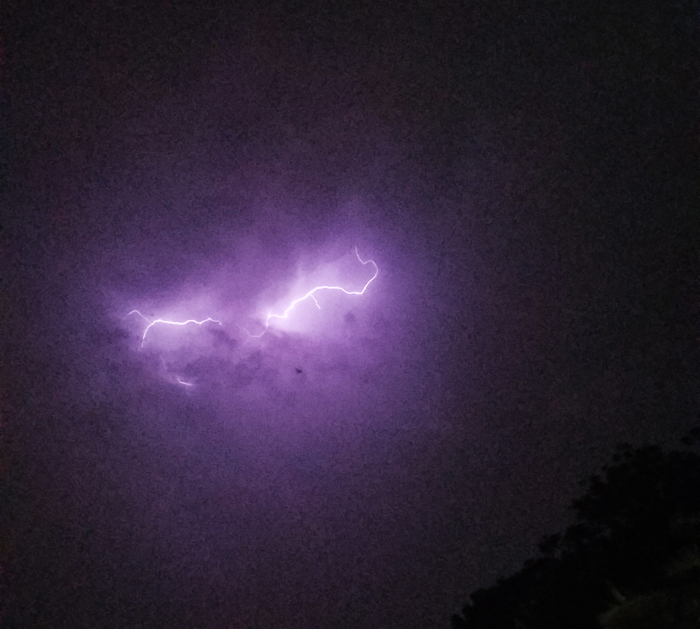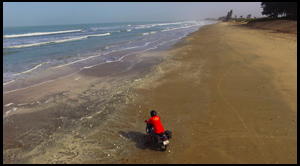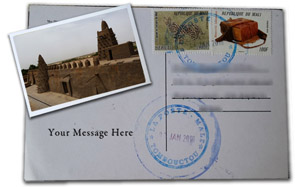Just when I think I can get off my regimen of valium and bush weed, 2020 drags me back in.
When I last posted, we had preemptively shut down the restaurant and hotel and a group of us moved in with essential provisions. Ah, the halcyon days of early voluntary confinement. What an irritating phrase. What I mean to say is 5 years ago we had a 2-month long drinking spree with friends and family, punctuated by anxiety and existential dread. What I really mean to say is a group of us moved into an empty hotel and we stayed healthy and remained friends (and family).
Five years later, we re-opened the restaurant only to close it after two weeks when we learned that one of our clients had tested positive (we have started a crowd-funding campaign – more on that later in the post). We met with the staff and discussed the situation. Eventually, we all arrived at the same conclusion. The business was/is on the brink. We could shut the doors permanently or we could stay open and take as many precautions as possible. As a friend said, this client was probably not the first nor will they be the last to walk through the doors as a carrier of COVID19.
We are an outdoor restaurant. From everything we have read, this is a good thing. We have spaced out our seating, purchased masks for the staff, installed a clever contactless hand-washing station that Matt engineered, and we have brought back additional staff to help with disinfecting tables, menus etc. and cleaning the bathrooms after each use.
We closed for a few days, did a deep clean and re-opened on Friday, July 10th. We were open for about 5 hours before we had to close again.
Several large but ultimately inconsequential demonstrations had been held in Bamako by a movement that began on June 5th at the place de l’indépendance in the center of Bamako. The resignation of President Ibrahim Boubacar Keita was at the top of the list of protesters’ demands. In the days before the July 10th protest, the organizers of the M5-RFP movement, named after the first protest on June 5th, called for non-violent civil disobedience following the gathering at place de l’indépendance.
For the who, what, where, why etc:
Boubacar Sangaré’s piece Mali: la légitimité du régime est arrivée à « l’épuisement ». Don’t read French? Put it in Google Translate and you will manage)
Mali: Les dieux sont tombés sur la tête (English) by Fatoumata Kane
Ça chauffe à Bamako de (English) by Gregory Mann
Mahmoud Dicko: The ‘people’s imam’ challenging Mali’s Keita (English) by Amandla Thomas-Johnson
Malians have been protesting for weeks. Here’s what you need to know. (English) by Susanna Wing
The two sides of Mahmoud Dicko (English) by Bruce Whitehouse
Mali: Roundup on the July 10 Protest and Its Aftermath (English) by Alex ThurstonDon’t agree with every word in every piece but I strongly recommend reading those if you want a good background on the current situation.
A list of commandments was distributed elaborating what defined civil disobedience. The idea was to block roads, bridges and state institutions. Emergency vehicles were to be allowed safe passage at all times. No property — public or private — was to be destroyed.
Things did not go exactly as planned. A considerable amount of public property was destroyed, notably the National Assembly, and some private property as well. Protesters stormed ORTM, the state TV and radio station, and briefly knocked it off air. Many of the barricades turned into an informal racket of tolls and at times, theft.
Did you read those articles I recommended? Due to 2020-related exhaustion and the abundance of expertise in the links above, I am not going to dig deep into why the civil disobedience commandments were not respected. I will just say this: imagine you are a young Malian with no job and no prospects, disenfranchised by a complete lack of faith in Mali’s institutions and politicians, and you see images of the President’s son (who is an assembly member and who was — up until last weekend — president of the Defense Committee) on a yacht with cigars and champagne before getting massaged by two scantily clad women on an island off the coast of Spain. That, that is just ever so slightly scratching the surface of possible sources of rage in Mali at the moment.
Back to Friday. The protest that started in the center of the town had spread throughout Bamako by the evening. Our hotel and restaurant is situated in the same neighborhood as Mahmoud Dicko’s mosque, which was now surrounded by a series of informal, manned barricades. We closed down early so that the staff could get home safely. My house is only a 5 minute scooter ride away, but I waited to get the all clear from Bintou and our neighbors. The “all clear” was not quite that, but I made it home safely.
Saturday is where things really went off the rails. There were reports of protesters killed and injured on Friday along with the arrest of members of M5-RFP’s leadership. On Saturday morning, security forces sacked the headquarters of CMAS, Mahmoud Dicko’s “Coordination of Movements, Associations and Sympathizers.” Unsurprisingly, none of these things helped to pacify the situation. We were once more forced to close.
After hearing from several staff members who struggled to avoid barricades on their way home, and Bintou, who shared the consensus from the house and our neighborhood grin (read this from Madina Thiam — it is applicable to this current situation generally and she explains what a grin is), I decided to sleep at the hotel. And by sleeping I mean making a series of poor choices in films to watch on my computer that did nothing to quell my anxiety.
If there was a single event that irrevocably changed the trajectory of the protest movement and the negotiations with the government, it was the assault on Dicko’s mosque Saturday night. The death counts vary, but it is not the number itself that matters. By all accounts, FORSAT, the Malian special forces unit that was created exclusively to respond to terrorist attacks, was deployed against Malian civilians. The live ammunition used and the resulting deaths recalled the violent repression of Mali’s former dictator, Moussa Traore, who was ousted by a coup in 1991.
From the hotel, about a mile away from the mosque, we heard everything. First the rounds of tear gas and then unmistakably, gunfire. At the time, we hoped they were firing into the air. A photojournalist friend who was at the bar took off for the mosque when the noise started. He returned with some horrific photos. They were not firing into the air.
What were they trying to achieve? Was the goal to remove the barricades? Arrest Dicko? Saturday night was a tragic, completely unnecessary turn of events and an awful miscalculation by someone or many people in the Malian government that has only served to strengthen M5-RFP’s position. As one Malian friend pointed out on twitter, the use of FORSAT and the ensuing deaths make a compromise very unlikely.
I went home on Sunday morning. That afternoon, Dicko prayed over the bodies of those killed at the mosque. The funerals were held shortly after. Following that, roads were blocked once more and the police dispersed protesters with tear gas in a game of cat and mouse that moved from one intersection to the next. Banks and many businesses preemptively announced that they would be closed on Monday. We also decided to close and I stayed at home. Matt and our skeleton crew at the camel heard (and smelled) tear gas throughout the day as protesters battled with police for control of the Pont des Martyrs (Martyrs Bridge, often called the old bridge).
On Tuesday morning the barricades had been lifted and traffic police had returned to their posts. There was debris everywhere and the intersection closest to my house still had a mountain of sand in the center of it and no working traffic lights. An exasperated cop tried to direct traffic while two other policemen sat hunched over on their jakartas under a lone beam of shade (the small hangar where they normally sit had been destroyed).
We had a decent lunch crowd given the circumstances, but we were once again forced to close in the evening. Barricades started going up just south of us so we sent the staff home. I raced home and arrived about 20 minutes before my own neighborhood was teargassed.
On Wednesday, an ultimately fruitless ECOWAS-driven mediation began. M5-RFP called off their planned Friday protest and civil disobedience was put on hold. On Sunday, the ECOWAS delegation left, their proposals rejected. The barricades started going up again yesterday, but police were everywhere and the road blocks were quickly dismantled.
Yesterday evening, M5-RFP announced a kind of truce until Eid al-Adha, commonly called Tabaski in the Sahel and Seliba (the big party in Bambara) in Mali. It is indeed a big party and for most Malians, a significant expense. While many of those participating in the protests are unemployed or making very little, there are plenty of other Malians in the capital who do have an income, either formally or informally, that may be sympathetic to M5-RFP and their core demands but will quickly tire of the protests if they can’t get to work or open their shops for days on end before the year’s biggest holiday. While this is a Bamako-centric view of things, I would still say that M5-RFP’s political maneuvering has been very savvy overall.
And now another ECOWAS delegation is on its way. The first one was led by Goodluck Jonathan, the former President of Nigeria. The second mediation effort will be a bigger affair. The Presidents of Ghana, Niger, Cote d’Ivoire and Senegal are all coming to town to try and figure out how they can keep IBK in power while making enough meaningful concessions to the opposition. I direct you to this piece by Alex Thurston that explains why M5-RFP is holding all the cards, for now.
Let me try and wrap this up.
Do you feel safe?
A lot of people have asked me this. The answer is yes. Things were very volatile the weekend of July 10th. I was here during the coup in 2012 and this somehow felt more “out of control.” Yet at the same time, there was very little violence overall if you take the security services out of the equation.
On Saturday, we had clients leave the bar in a hurry once they heard that the barricades were starting to go up on their route home. They left too late. Held up at an intersection on one of Bamako’s main north-south roads, they were surrounded by a group of kids wielding rocks. They tried to reverse the car and it stalled. It wouldn’t move. Some of the kids tried to reach in to the car and grab their phones. The clients all got out and ran to a family that was calling to them from the other side of the road. One of the family members explained that they would need to move the car. A neighbor nearby volunteered his garage and helped our clients push their car into it. You know who else helped them push the car? The same kids that were trying to grab their phones.
There was property destruction, there were rackets, and there was theft. But having lived in Mali for a while now, the above anecdote is completely unsurprising to me. On Monday, they got their car back in one piece and a mechanic got it back up and running.
What’s next?
I have no fucking idea. In terms of Mali, I have no meaningful insight or predictions to share. This country has a strong record of reconciliation and deal-making at the political level, the latter often at the expense of the population. But this feels like several orders of magnitude beyond a resolution rooted in horse-trading.
In terms of our business, we’ve managed to hang on, but the current situation is vying for first place in the all-time rankings of Sleeping Camel existential crises (the coup still holds the top spot). We did start a crowd-funding campaign, which is close to reaching its goal. We are incredibly grateful for all the support we have received from current and former clients, many of whom are also close friends. Thanks to the campaign and the patronage of clients in Bamako, we have managed to weather the storm without laying off any staff members. If you want to chip in something, you can do so here.
In terms of my personal life, everyone is healthy and I have infinite gratitude for this fact. Bintou is 8-months pregnant during a pandemic. We just had a check-up today and she and baby are both doing well. Our OB-GYN has canceled her planned August vacation abroad (bravo coronavirus, you have given us this one nugget of good news). Andre is doing what any almost-4-year-old should be doing, having new adventures every day.
My mental health is a bit all over the map, but whose isn’t? I can barely wrap my head around what is going on here and then I read the news from the states. If this is really all a dress rehearsal for a future climate catastrophe (I have seen I don’t know how many articles with that title and have been too afraid to click them), then fuck me.
Lastly
Our Postcards from Timbuktu project got a big boost from this article by Jonathan Fischer in a German newspaper. This was good timing as Timbuktu has faced the worst outbreak of COVID19 in Mali. We have been able to steer profits from the project as well as contributions from clients to mobilize our team to spread awareness and distribute hand-washing stations, soap, disinfectant and masks. I have written a bit more and shared some photos in this post on the Postcards from Timbuktu site.
How are you all doing? Well, I hope. As well as possible I should say. Stay safe and healthy and look out for each other.





0 Comments